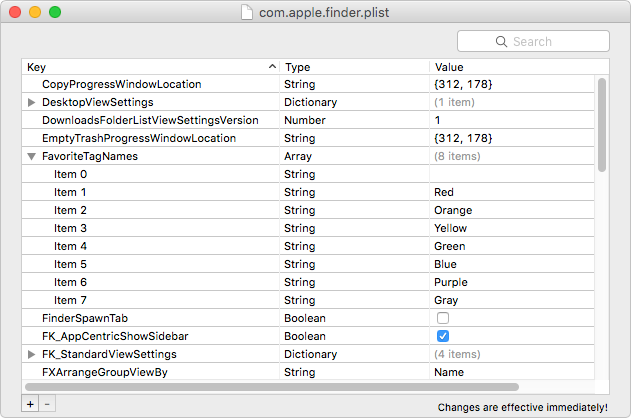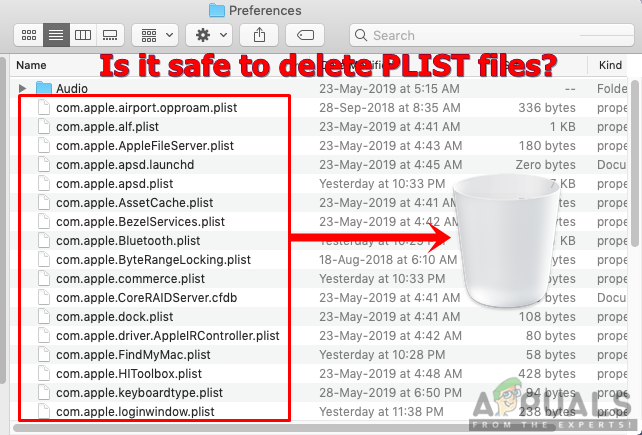
The best app available to edit plist files in Mac OS X is actually Xcode. For any modern version of OS X, the Xcode suite includes native Plist editing abilities, whereas earlier versions of Xcode include a separate standalone app called Property List Editor – both are in Xcode, however. You can launch a plist file directly into Xcode to edit. PLIST is a file format that was designed by Apple Computer and GNUstep for storing information about applications, user settings and other serialized objects. If you are looking for tools that will let you edit the PLIST files on your Mac, then take a look at the apps from the following list.
A PLIST file is a settings file used on Apple operating systems, also known as 'Property List' file. PLIST file is widely used by iOS apps and macOS applications. macOS provides several ways to open and view PLIST file, for example xcode and 'Property List Editor'. But there is no such program to view plist file on windows. iBackup Viewer offers a free utility tool to view binary and xml PLIST files, also provides a simple HEX viewer to view binary data value of the plist file. Please follow these steps to open plist file on Windows.
Plist Editor Mac Freeware
Install and Launch iBackup Viewer
Download and install iBackup Viewer on your computer, launch iBackup Viewer.
Open Property List Viewer
When iBackup Viewer starts, choose 'Property List Viewer' from the main menu
Click the 'Open' button to open and view a PLIST file.
iBackup Viewer supports editing property list file starting from version 4.18.2 (4.1820 for Mac)Change type of item
Allow editing value of plist item
Easily undo or redo changes
To view binary data value looks like '<6400a322 f303ac23....a3c4d232>', double click on the value to open hex viewer.Edit value of 'Data' item
iBackup Viewer supports pasting base 64 string to edit value by pressing Control + V or Command + V when 'Data' item is selected.
File TypeMac OS X Property List File
| Developer | Apple |
| Popularity | |
| Category | Settings Files |
| Format | Text and Binary |
The best app available to edit plist files in Mac OS X is actually Xcode. For any modern version of OS X, the Xcode suite includes native Plist editing abilities, whereas earlier versions of Xcode include a separate standalone app called Property List Editor – both are in Xcode, however. Get Xcode from the App Store; You can launch a plist.

- However, PLIST Editor comes in at a much lower price point (US$3.99 on the Mac AppStore). Its feature set covers all the necessities. Its feature set covers all the necessities. It can open property list files with file extensions other than.plist (for those pkginfo or recipe files you want to edit) and supports drag and drop and undo and even.
- Download PlistEdit Pro for Mac - An advanced property list and preference editor for OS X that allows the customization of fonts, editing of texts of a property list and the sorting of arrays and dictionaries.
What is a PLIST file?
A PLIST file is a settings file, also known as a 'properties file,' used by macOS applications. It contains properties and configuration settings for various programs. PLIST files are formatted in XML and based on Apple's Core Foundation DTD.
Edit Plist Mac
PLIST files can be saved in a text or a binary format. The text-based documents and can be edited with a text editor. However, they typically should not be edited by the user, since they are modified by their respective programs as needed.
Property list files included with applications can be created and edited by the developer using Apple's Property List Editor, which is included with Apple Developer Tools. They can also be opened and edited using a third-party PLIST editing program.
NOTE: You can convert PLIST files between XML and binary formats using the plutil command line tool:
- Binary to XML: plutil -convert xml1 file.plist
- XML to Binary: plutil -convert binary1 file.plist
Info.plist - The primary property list for Mac OS X applications, located in the /Contents/ directory of an .APP bundle. To view this file, right-click an application file, select 'Show Package Contents,' and open the Contents folder.
Open over 300 file formats with File Viewer Plus.Programs that open PLIST files




